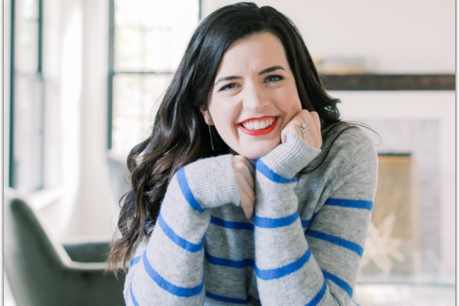In the Christian calander, Advent refers to the four Sundays and weeks leading up to the celebration of Christmas. In Latin, Advent means “coming,” and this season provides a window in time for Christians to intentionally dwell in a spirit of longing, hope, and patient waiting and anticipation. In a year of public health crisis, financial and work uncertainty, racial unrest, and political strife, this emphasis strikes a new resonance in our life experience and has the potential to impact us more powerfully than in the past.
As I seek to understand and live out my faith, I find I become consumed, from time to time, with different perspectives and voices. As I look on my bookshelves, for example, I am fondly reminded of times where I have been enamored by the insights of Frederick Buechner, Shane Claiborne, Kathleen Norris, Parker Palmer, Barbara Brown Taylor, and, of course, C. S. Lewis, among others. Recently, I have acquired a new hero: Kate Bowler.

Kate has put out a free Advent devotional, and I find I am profoundly drawn in by her thoughts, as she so beautifully and compellingly connects traditional Christian faith with the suffering of this year and this moment. Part of this ability surely stems from her own experience and struggle with as someone who suffers as a stage IV cancer patient, (which she discusses in her amazing TED talk). For example, in the “liturgy” she shared today, Kate invites us to pray:
“blessed are we with eyes open to see
the suffering from pandemic danger, sickness and loneliness,
the injustice of racial oppression,
the unimpeded greed and misuse of power, violence, intimidation,
and use of dominance for its own sake,
the mockery of truth, and disdain for weakness or vulnerability,
and worse,
the seeming powerlessness of anyone trying to stop it.
blessed are we who despair for our democracy,
and ask: what can we do to protect it?
blessed are we who ask: where are you God?
and where are Your people
the smart, sane, and sensible ones who fight for good?”
***
As I meditate on these words, I am stunned by the realization of how much pain this year I have consciously or unconsciously tried to suppress. I feel my perspective broadened and made more whole by inviting and welcoming “eyes to see” those who are sick, lonely, and oppressed. I recognize, afresh, the extent to which truth, weakness, and vulnerability are being mocked, and how that makes all the problems we’re facing worse. I appreciate the despairing concern for our democracy and world. And, I agonize over why “God’s people” so often are part of these problems, and why they are not more often involved in the fight for good.
This prayer validates my experience and urges me to have more empathy for those who are struggling right now and do what I can to help. As Kate concludes her “liturgy,” it builds a conviction to “take hold of hope, as protest.”
As we look toward Christmas this year, we do so with a realization that God doesn’t shy away from awfulness (like I tend to do). In fact, God enters in vulnerably – rejected, in the midst of a genocide, and in the humble form of a baby. Emmanuel remains with us, in suffering, and God calls us to be present, in suffering, as well.
